How artificial intelligence is changing your world
Like this week’s grim economic outlook, the CSIRO’s report on megatrends that will frame the lives of Australians in the coming decades made confronting reading. There might be a silver lining.
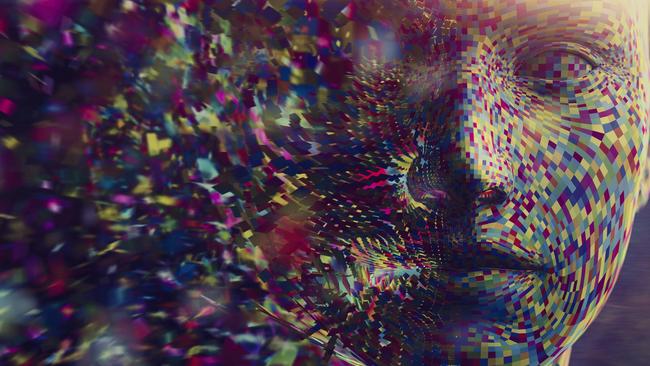
Yet if there is a silver lining, it’s the potential for science to rise to the occasion, the national research agency argues. And not only through tried-and-true human ingenuity. Artificial intelligence, AI, is the hope of the side to take on some of the mind-boggling challenges shaping CSIRO’s thinking about the next 20 years.
As chief executive Larry Marshall puts it: “We are living in a world full of volatility, uncertainty, complexity and ambiguity and believe it or not, there is much more yet to come.
“Our future depends on our ability to face the waves of disruption that are coming at us, to face the uncomfortable truths and respond together at scale. As a nation, we haven’t always done this well.”
The idea that machine learning, predictive analytics or computer vision – building blocks of current generation AI – can fix at least some of the mess made by humanity is certainly an appealing one. There is just one catch: it will never work unless people buy into the project, and for now that remains clouded by a very human suspicion of AI and how it is transforming society at the individual and collective levels.
This goes beyond the Terminator effect popularised in the Hollywood movie franchise that a “Skynet” of super-intelligent computers will become self-aware and attack with killer robots, a hoary chestnut of science fiction.
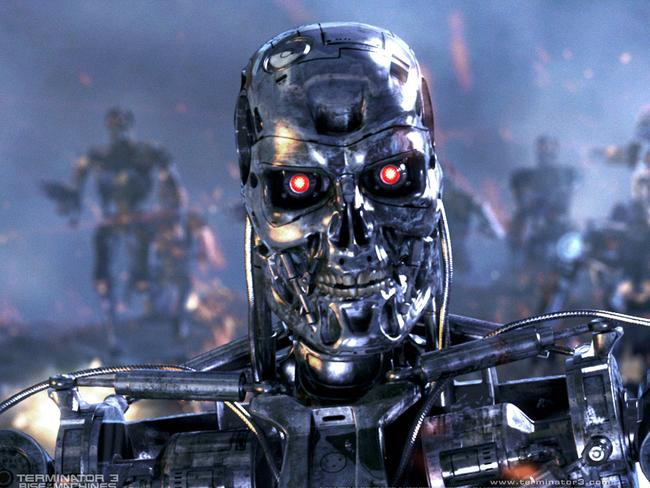
It also embodies an age-old fear of change and the inevitable – though hopefully transitory – collateral damage inflicted on lives and livelihoods. Think the Luddites of the industrial revolution or those bewildered Cobb & Co craftsmen from early last century thrown on the scrap heap by the horseless carriage.
Still, the cause of safe and family-friendly AI wasn’t helped this week by the revelation that a chess-playing robot had fractured the finger of its seven-year-old opponent during a tournament in Moscow.
“This of course is bad,” deadpanned the president of the local chess federation, Sergey Lazarev.
CSIRO’s megatrends report recognises that AI will not realise its potential unless the public comes along for the ride. Currently, 68 per cent of Australians do not trust artificial intelligence, according to poll-driven research.
A 2020 study by the University of Queensland and financial services firm KPMG also found that 45 per cent were unwilling to share their data with an AI system; and though 42 per cent accepted the technology, only 25 per cent supported or embraced it.
The upside is that acceptance climbs to 81 per cent with the addition of “assurance systems” such as a code of conduct or ethics charter. The lesson has been absorbed by policymakers. In 2019, the then federal Department of Industry, Science, Energy and Resources released a set of eight ethical principles designed to ensure AI is “safe, secure and reliable”.
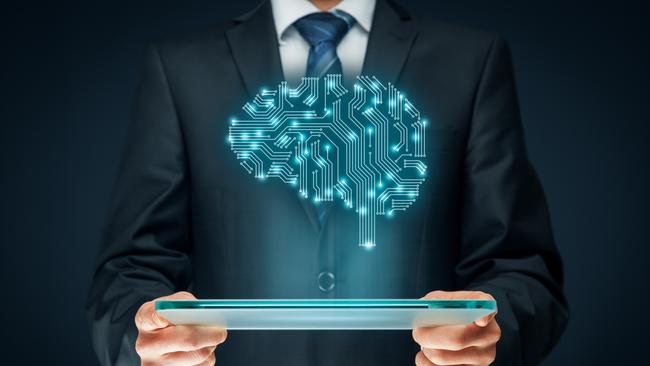
Point one sets the tone, holding that AI systems should benefit individuals, society and the environment. “Human-centred” values of fairness, respect, transparency and accountability also are enshrined, and there is provision for individual privacy and data rights to be protected. All sensible and useful measures, to be sure. Yawn.
It’s a far cry from the cut-through of sci-fi master Isaac Asimov’s snappy three laws of robotics, headlined by the dictum that a robot may not injure a human being or allow a human being to come to harm. In fairness, we are only at the start of what promises to be a very long journey to regulate AI and avoid the apocalyptic, Terminator-esque scenario envisaged by Tesla founder Elon Musk, in which the rise of self-thinking machines is akin to “summoning the demon”.
Jon Whittle, the eminent software engineer who heads CSIRO’s specialist data and digital arm, Data61, and helped devise the ethical principles, agrees the language is too lofty. But you have to start somewhere and a newly launched National Artificial Intelligence Centre will draw up a more straightforward template for “responsible” AI.
The aim, he says, is to “take those high-level ethical principles and work with business to actually make them more concrete”.
At the same time, Australia is lagging much of the developed world in adopting and controlling the technology. The cost is substantial. The megatrends report relates how this country captures less from digital innovation than other advanced economies, for a gross domestic product share of 7.4 per cent here, against the international benchmark of 11.2 per cent.
Given the next wave of innovation is expected to be worth $10 trillion to $15 trillion globally, we need to lift our game or be left behind, CSIRO says.
Take the “escalating health imperative” post-pandemic, one of seven seismic shifts identified by the agency. While the focus has been on Covid-19 since the pandemic erupted in 2020, the threat to human and animal health from antimicrobial resistance, AMR, continued to grow. These drug-evading superbugs kill more people worldwide than malaria or HIV and if not contained will slash up to 3.8 per cent from gross global product, CSIRO predicts.
This is where AI could step up. Google’s DeepMind AlphaFold uses machine learning to predict the three-dimensional structure of proteins – opening up new avenues for medical research and potential drug development to head-off problems such as AMR before they become intractable. The next frontier of so-called autonomous experimentation is an AI system that can make scientific discoveries indistinguishable from those of the best human researchers.
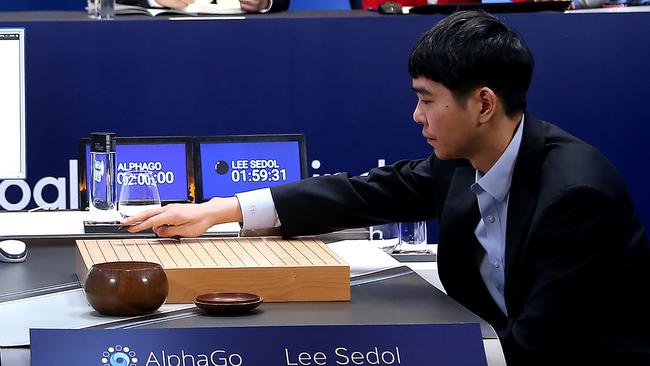
If that seems like blue sky thinking, Marshall points out that AI is making a tangible difference in the here and now to mitigate the biggest megatrend of them all, global warming. The cost to the Australian economy of climate-related natural disasters is projected to hit $39bn by 2050, triple what it was five years ago. By default, adaptation was now the name of the game, he told the National Press Club on Wednesday.
“The uncomfortable truth is the world has missed its opportunity to limit dangerous climate within this century,” the CSIRO boss said. “We will need to wait until the beginning of next century to see the benefit of emission reduction we do today, so we must adapt to a changing climate while we wait for the world to reduce its emissions.
“We need to adapt our health care system, our critical infrastructure, our settlement patterns and our disaster preparedness.”
After 2009’s Black Saturday bushfires in Victoria, CSIRO turned to advanced technologies including AI to avert a repeat of the disaster that killed 173 people and destroyed more than 2000 homes. One outcome was the Spark program, using machine learning to simulate bushfire paths to “out-think fire so we can get ahead of it”, Marshall says.
In a similar vein, Qantas deploys AI in a world-leading flight planning system called Constellation to achieve faster, smoother, more fuel-efficient services and reduce its carbon footprint. Unglamorous as logistics are, it’s where AI is having the most impact on the daily lives of Australians, says the executive director of CSIRO’s digital, national facilities and collections portfolio, Elanor Huntington. The opening and closing of “tidal flow” road lanes to manage peak-hour traffic congestion is one example of where AI has unobtrusively taken over.
A Canberra-based company, Seeing Machines, is using computer vision to detect and alert fatigued truck drivers, while in Brisbane Ripper Corp, in conjunction with the University of Technology Sydney, has developed airborne drones that can spot sharks in the surf better than any flesh-and-blood lifeguard (93 per cent versus 16 per cent accuracy).
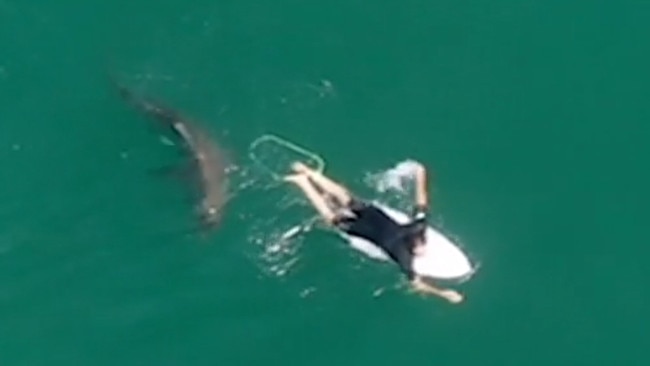
“AI is doing a lot of heavy lifting on logistics these days, which sounds pretty mundane until you are at the wrong end of a broken supply chain,” says Huntington. “It is increasingly critical to smoothing our daily lives.”
For his part, Whittle is wary of the hype around AI at both ends of the trust spectrum. “I think the biggest problem we have is a lack of awareness of what the technology is,” he tells Inquirer. “It’s often presented as though it’s some kind of magical thing … it’s either going to solve all the world’s problems or it’s going to create a whole bunch of new problems when AI robots take over the world and come for us. Neither of those scenarios is actually true.”
Perspective is required, and a far more nuanced understanding of the strengths and limitations of the technology as well as the varying level of risk attached to different applications.
If Netflix misfires on a film recommendation it’s hardly the end of life as we know it, Whittle insists. But it’s a different matter entirely should AI-generated computer vision misread a patient’s diagnostic scans in the health space – something that was trialled, mostly unsuccessfully, during the pandemic on chest X-rays to detect Covid (separate testing in Britain on women’s mammograms proved more effective).
“Artificial intelligence is helping us to solve challenges like accelerating vaccine development, predicting drought and stabilising our energy grid already, and in time it will change every aspect of science and industry,” Marshall says. “Whether we come out on the winning side … or the losing side of this disruption is entirely decided to do what each one of us decides to do next.”


Like this week’s grim economic outlook, the CSIRO’s report on megatrends that will frame the lives of Australians in the coming decades made confronting reading. From the pandemic to drug-resistant superbugs, war in Europe, trade tensions with China and climate change, the threats seem endless.